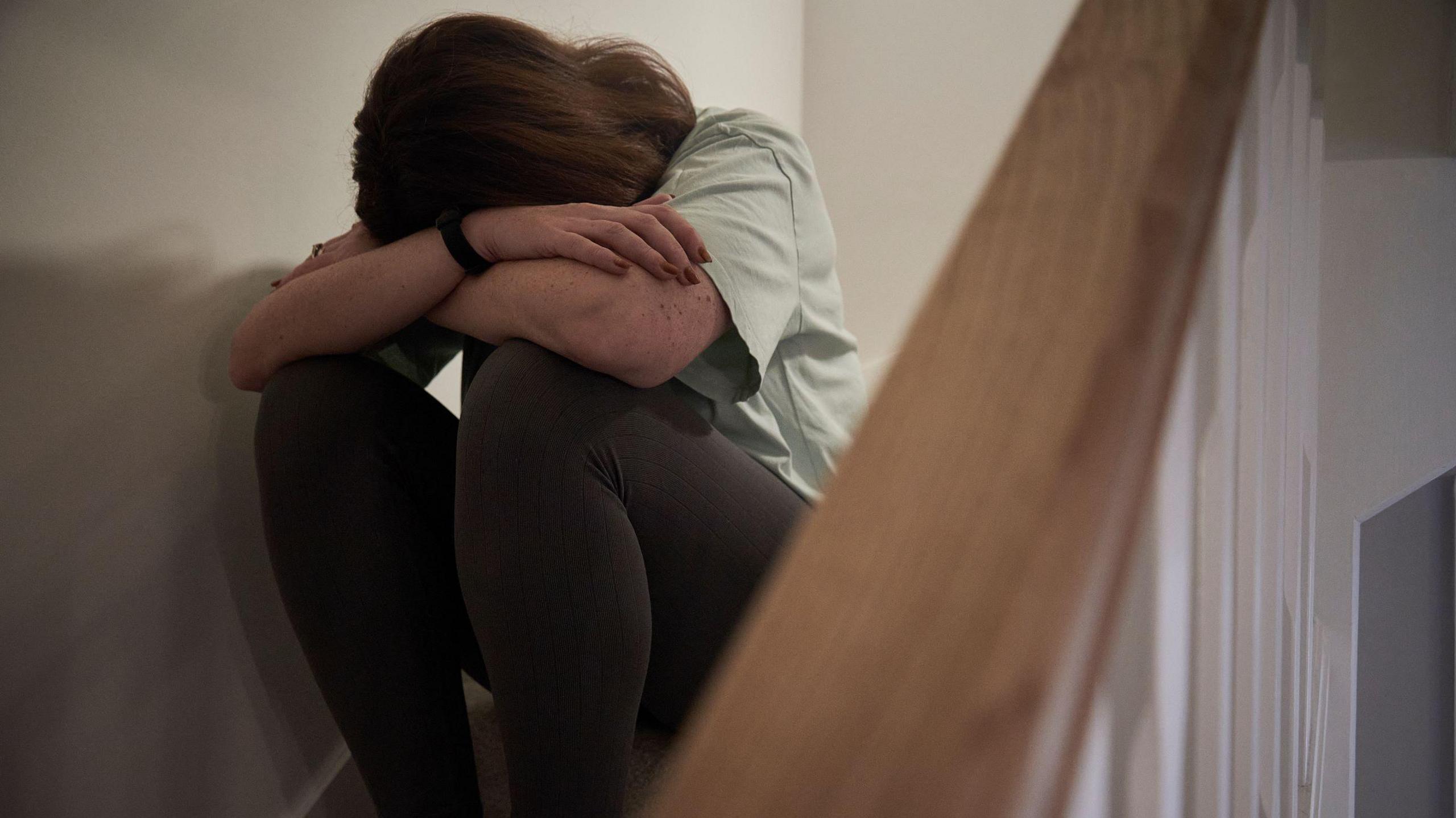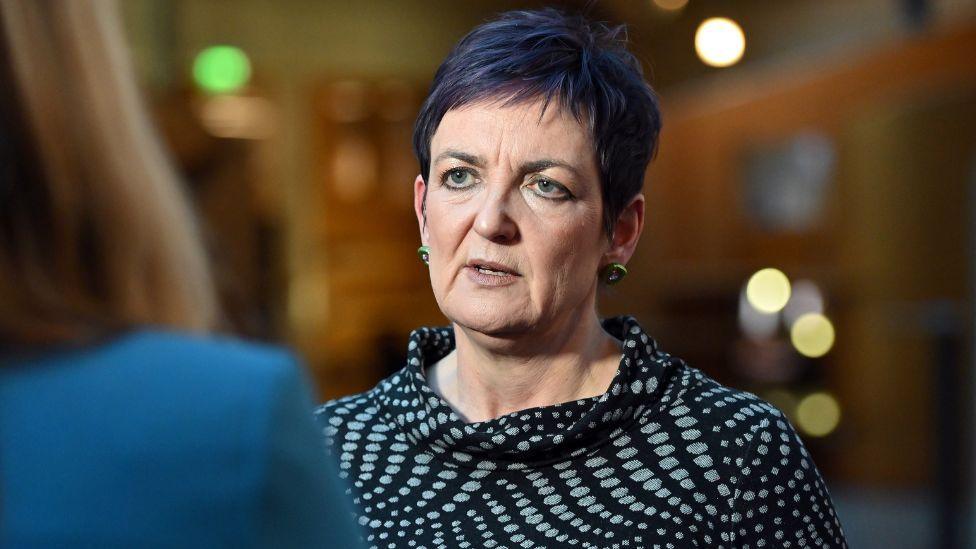MSPs back new law to review domestic abuse deaths

Ministers say the law change is designed to prevent cases of abuse
- Published
Murders and suicides linked to domestic abuse are to be reviewed under new legislation backed by the Scottish Parliament.
Selected cases will be examined by an independent panel aiming to learn lessons and stop further deaths.
The legislation will also introduce changes designed to modernise the justice system, such as allowing people to attend court via video call.
The Criminal Justice Modernisation and Abusive Domestic Behaviour Reviews (Scotland) Bill was passed unanimously by MSPs at Holyrood.
The bill, tabled by Justice Secretary Angela Constance, will allow for the creation of a panel to review selected homicide or suicide cases linked to domestic abuse.
Reviews are expected to begin in spring next year.
They are to be held into cases where public authorities or voluntary organisations were, or could have been, involved in the circumstances leading up to the death of a partner, ex-partner, or child where abuse was known of or suspected.
'Gendered crime'
As well as cases where an abuser has killed their partner or ex-partner, reviews could be carried out into instances where an abused person has killed their abusive partner or ex-partner.
A supporting document to the bill describes domestic homicide as "a gendered crime that is overwhelmingly committed by men against women".
However the reforms will also allow for cases involving male victims of domestic homicide and suicide to be reviewed.
Ministers have said they intend to extend the review model in future to cover honour killings – crimes committed under the pretence of protecting the supposed honour or reputation of a family or community.
The latest annual statistics, external show that Police Scotland recorded about 64,000 domestic abuse incidents in 2023-24, up by 3% on the previous year.
Scotland is the only part of the UK that does not have a domestic homicide review model. Such schemes are also used in the United States, Canada, Australia and New Zealand.
The case reviews will be carried out by a panel made up of people who have related expertise, such as those who have knowledge of domestic abuse or have worked in policing or on parole boards.
Justice, health, social care, local government and third sector agencies would then be required to agree any changes that could help prevent further deaths.
An oversight committee will decide which cases should be reviewed.

Justice Secretary Angela Constance has steered the bill through parliament
The legislation will also make permanent changes that were introduced to the justice system during the pandemic.
This includes allowing virtual attendance at court and enabling the documents in criminal cases to be signed and sent digitally.
The legislation will enable prosecutors to seek a fixed penalty fine of up to £500 as an alternative to prosecution, and it will allow courts to accept "non-controversial" aspects of police body-worn footage, such as details of time and location, subject to challenges by defence lawyers.
The legislation will also allow for images of physical items, such as a weapon, to be treated in court as if they were the item itself.
Domestic abuse reforms can save lives, says victim's mother
- Published25 September 2024
How I found the confidence to leave my abusive husband after 47 years
- Published24 September
Public bodies have raised concerns about the cost of setting up and running the review model.
While Justice Secretary Angela Constance has predicted that the cost to public bodies will be minimal, she said ministers were aware that they had to provide sufficient resources for the reforms to work.
Victim Support Scotland welcomed both parts of the bill.
Carol Eden, the charity's head of communications and external affairs, said: "Much of what is being put into legislation reflects what has been in practice for several years now as a result of Covid.
"Victims and witnesses have become accustomed to and expect the level of flexibility this offers, and to not make permanent these powers would be a retrograde step.
"Equally, Victim Support Scotland is supportive of legislation to underpin a domestic homicide and suicide review model to help to develop a better understanding of how domestic abuse impacts communities in Scotland."
'Gold standard'
Constance said that the bill would create a "gold standard" for reviews into domestic homicide and suicide reviews.
"Any death in connection with domestic abuse is one too many," she told MSPs.
The minister added that while legislation alone could not tackle the issue, the creation of a review model would help "learn lessons, improve services and better protect victims".
Scottish Conservative justice spokesman Liam Kerr confirmed his party's backing for the bill, but he echoed concerns about the legislation's impact on police, local authority and court budgets.
Scottish Labour justice spokeswoman Pauline McNeill described the introduction of domestic abuse reviews as an "excellent" move that would aid efforts to stop violence against women and girls.
She told parliament that the bill would deliver much needed modernisation in the justice system but warned that government had to remain "vigilant" to ensure the court reforms worked in practice.
Scottish Green justice spokeswoman Maggie Chapman said the bill "represents progress towards a system that listens learns and acts with integrity".